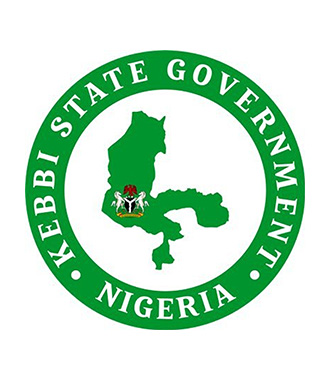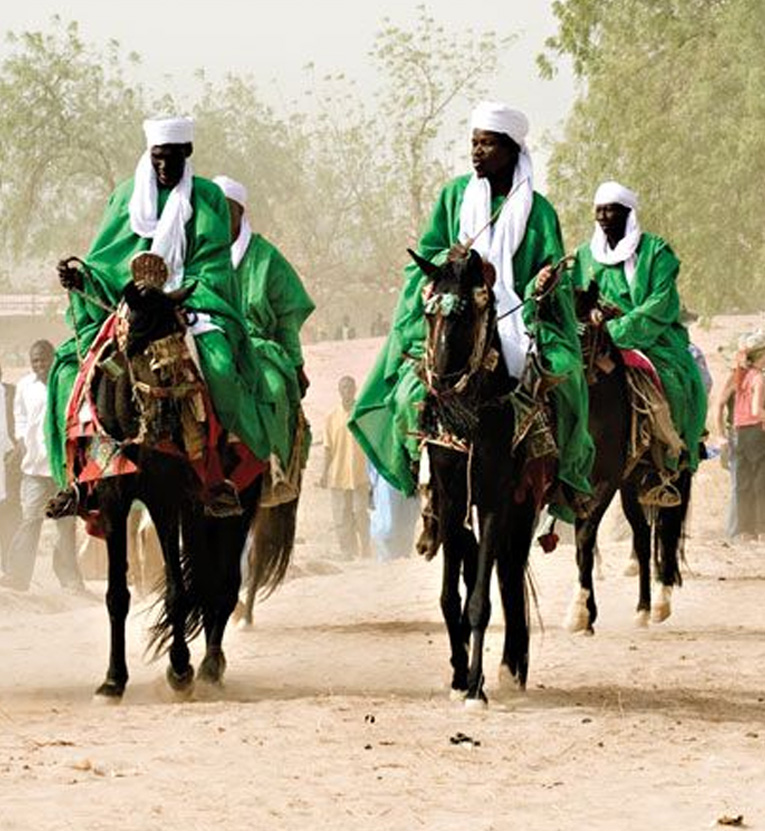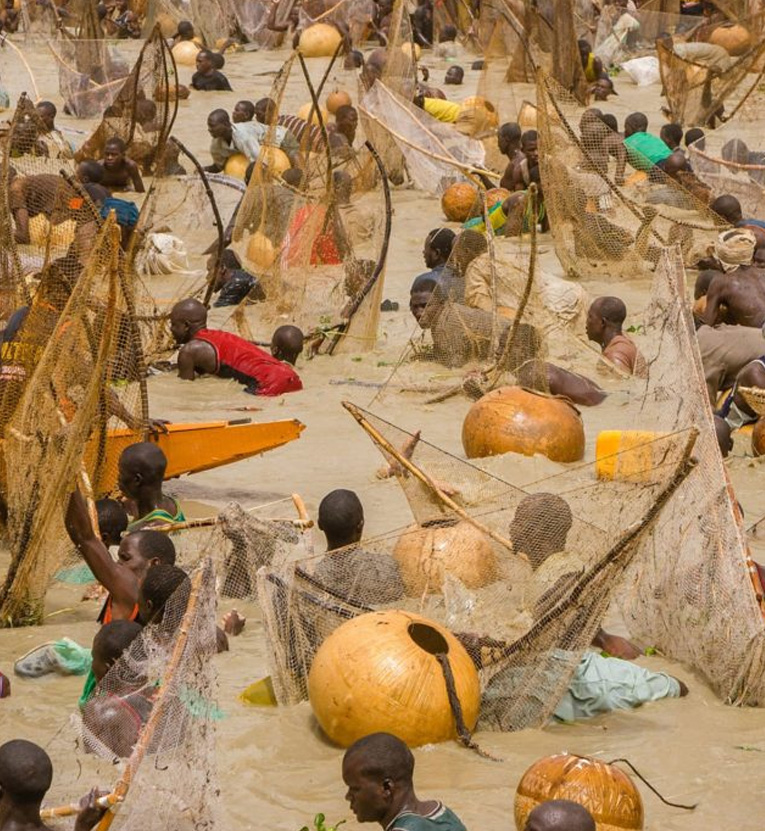Thank You!
Your submission has been sent.
Kebbi

People
Kebbi State, located in the northwestern part of Nigeria, is a region rich in culture, history, and diversity. The people of Kebbi State, known for their warmth and hospitality, are predominantly of the Hausa and Fulani tribes, although there are other ethnic groups such as the Zabarmawa, Dakarkari (Dakkakari), Kambari, and Dendi among others, each contributing to the state’s vibrant cultural tapestry.
The primary language spoken in Kebbi State is Hausa, among the various ethnic communities. Islam is the predominant religion, deeply influencing the culture, festivals, and daily lives of the people.
Culture
Kebbi State, located in the northwestern part of Nigeria, it has a rich diverse culture, language, and tradition, reflecting the heritage of its various ethnic groups. The state’s culture is predominantly influenced by the Hausa, Fulani, Zarma (Zabarmawa), and Dakarkari(Lelna) peoples, among others. Hausa is the predominant language spoken in Kebbi State, serving as a general language among the diverse ethnic communities. Each ethnic group, however, maintains its language, contributing to the state’s linguistic diversity.
One of the most prominent aspects of Kebbi’s culture is its festivals, which are celebrated with great enthusiasm and serve as a means of preserving the state’s rich cultural heritage. The Argungu Fishing Festival is perhaps the most famous, attracting thousands of fishermen, tourists, and cultural enthusiasts from across the globe. This annual event, held along the River Sokoto, showcases competitive fishing, traditional dancing, and boat racing. Other notable festivals include the Uduru Durbi (Horse Riding Festival) celebrated by the Zurupeople and the Ehola Festival, which marks the end of the farming season among the Gwandu people.
Economy
The economy of Kebbi State is predominantly agrarian, with agriculture being the mainstay of its people. The state is a leading producer of crops such as rice, millet, sorghum, and wheat, contributing significantly to Nigeria’s food basket. In recent years, the government has initiated several programs to boost agriculture and empower farmers, enhancing the state’s economic development.
Given its access to the river Niger and other inland water bodies, fishing is another critical component of Kebbi State’s economy. The state hosts the famous Argungu Fishing Festival, an annual event that attracts thousands of fishermen from within and outside Nigeria. This festival not only showcases the rich cultural heritage of the state but also highlights the economic potential of the fishing industry.Kebbi State is endowed with various mineral resources that are yet to be fully exploited. These include gold, limestone, gypsum, feldspar, and kaolin. With the right investment and development strategies, the mining sector in Kebbi has the potential to become a significant contributor to the state and national economies.
Trade and commerce thrive in Kebbi State, with numerous markets spread across the state dealing in agricultural products, textiles, and other goods. The state’s strategic location also facilitates cross-border trade with neighboring countries like Niger and Benin, enhancing its commercial activities.
Politics
Kebbi State plays an active role in Nigeria’s federal structure. Governed under a democratic system, it has a state government headed by an elected governor who works in collaboration with members of the state assembly. Kebbi State’s political landscape is influenced by national parties, with local governance focusing on development projects, education, healthcare, and infrastructure to improve the lives of its citizens. The state’s political leaders are pivotal in shaping policies that aim to harness the economic potential of Kebbi and address the needs of its diverse population.
Since its creation in 1991, Kebbi State has seen a diverse array of governors steering its development and governance. The state’s leadership journey began with Brigadier Patrick Aziza (1991-1992) and was followed by military officers including Colonel Salihu Tunde Bello (1992-1993), Colonel Abubakar Musa (1993-1996), Colonel John Ubah (1996-1998), and Colonel Samaila Bature Chamah (1998-1999), all serving in non-partisan capacities during Nigeria’s military era. The transition to democracy in 1999 brought Mohammed Adamu Aliero to power under the All Nigeria Peoples Party (ANPP), serving until 2007. He was succeeded by Usman Saidu Nasamu Dakingari (2007-2015) of the People’s Democratic Party (PDP), who focused on the state’s growth and development. The current governor, Abubakar Atiku Bagudu (2015-2023), elected under the All Progressives Congress (APC), Continuously under APC HE Dr Nasir was sworn in 2023 as the present governor of the state.
pcl. State Performance Index
The pcl. State Performance Index provides a comprehensive assessment of Abia State's overall performance, combining primary survey data with data from credible sources. In summary, Abia State achieved a PSPI Score of -0.32, ranking 36th out of 37 states with a BBB rating, indicating Under Performance.
Summary of Analysis
Abia State’s assessment reveals a sub-optimal utilisation of its socioeconomic potential, compounded by the pessimistic perspectives voiced by its citizens in our survey. This combined evaluation results in Abia State receiving a BB rating, indicating “under-performance,” and securing the 36th overall ranking. Abia State requires significant improvement across all other indicators except for literacy rate and the capital expenditure to budget ratio. Additionally, effective management of citizens’ perceptions of performance is crucial. Abia State should prioritise strengthening public institutions, investing in infrastructure, and fostering human capital development.

Outlook for Kebbi State: Positive
The outlook for Abia State remains positive, contingent upon several key factors:
1. Political Shift: The recent election victory of Mr Alex Otti from the Labour Party heralds a promising change in Abia State’s political landscape. The public’s optimism suggests a heightened focus on people-centric governance, potentially translating into improved overall administration.
2. Private Sector Expertise: Governor Alex Otti’s background in the private sector, notably as a seasoned banker, injects valuable expertise into the state’s leadership. While promising, potential conflicts with the public service require careful management to ensure effective collaboration and governance.
3. Innovative Local Governance: A groundbreaking shift in local governance sees accomplished individuals and former military leaders appointed as mayors, a departure from traditional political appointments. While not constitutionally mandated, this innovative approach aims to engage elites in government, fostering efficient local administration and promising prosperity.
4. Infrastructural Drive: The prioritisation of major road projects, including the Aba-Port Harcourt road constructed by Julius Berger, underscores the commitment to transformative infrastructure. Well-connected roads are vital for trade and hold the potential to drive holistic state development.
5. Resource Optimisation: Abia State possesses untapped resources, including gas reserves and a skilled workforce. Effective utilisation of these assets is a key driver for growth and could significantly impact the state’s economic outlook.
While the current positive outlook is a good starting point for Abia state, it is crucial to recognise and confront specific challenges that have the potential to hinder further progress. These challenges include:
1. Early Politicking for the Next Elections: Due to the Labour Party movement in the Southeast and the need for the ruling party at the centre to gain more grounds, politicians and leaders in Abia might become preoccupied with preparing for the next elections soon after taking office. This early focus on political campaigns and securing future positions can divert attention and resources away from governance and addressing the immediate needs of the state’s residents. It may result in less effective governance and slower progress on important issues.
2. Ongoing Agitation in the Southeast: The Southeast region of Nigeria has experienced agitation and unrest in recent years, with various groups and movements expressing their grievances and demands. If not well managed, these ongoing tensions and protests could disrupt peace and stability in Abia State. It might create an environment of uncertainty that hampers economic activities, investments, and overall development efforts. Therefore, effectively addressing and managing these regional tensions is essential for continued progress in the state
Recommendations for Sustainable Progress
To ensure sustainable progress and growth and move Abia State to a positive outlook, the following recommendations should be considered:
1. Enhanced citizen Engagement: Abia State should prioritise engaging with its citizens through regular town hall meetings, consultations with key stakeholders, and transparent communication. Involving citizens in policymaking is essential for effective governance.
2. Political Solution for Agitation: The state government should engage with the federal government to find a lasting political solution to the ongoing agitation in the Southeast, fostering peace and stability.
3. Infrastructure Revolution: Commence an infrastructure revolution in the state using creative means such as concessions, public-private partnerships (PPPs), and project finance. This will enhance the state’s physical and economic development.
4. Strengthen Public Institutions: Pay attention to the traditional institutions and public service to ensure effective service delivery for the benefit of the public. Strengthening institutions is crucial for governance and development.
5. Maximise Domestic Trade: Improve tax reforms, enhance market access and development, and invest in transportation infrastructure to maximise opportunities for domestic trade. This will stimulate economic growth and create employment opportunities.
6. Inter-State Collaboration for Progress: Collaborate with other state governments across Nigeria, drawing lessons from states like Akwa Ibom, Jigawa, Kwara, Gombe, and Kogi in various areas such as infrastructure development, job creation, financial inclusion, public institution strengthening, and the preservation of social and cultural values. Learning from the experiences of successful states can help Abia State bridge gaps and achieve its development goals.
By implementing these recommendations and focusing on the identified areas of improvement, Abia State can further solidify its position as a prosperous and stable state within Nigeria, contributing to its continuous growth and development.

Fact Sheet
Internally Generated Revenue
18.65 B
Y-o-Y
-5%
Per Capital Income
943,526.99
Y-o-Y
10
PMS Price
643.13
Y-o-Y
248%
Budget Size
160.52 B
Y-o-Y
9
Capital Expenditure
45.42 B
Y-o-Y
4%
Operating Expenditure
54.88B
Y-o-Y
1
Inflation Rate
29%
Y-o-Y
32%
Unemployment Rate
50.10%
Y-o-Y
5
Poverty Rate
10.7%
Y-o-Y
-65%
Infant Mortality Rate
115
Y-o-Y
37%
Literacy Rate
89
Y-o-Y
-7%
FAAC Allocation
82.95 B
Y-o-Y
35%
Data Source
National Bureau of Statistics:
▪ FAAC Allocation – 2022
▪ Inflation rate – 2022 – 2023
▪ PMS Price – 2022/23 Q4
▪ GDP – 2021 & 2022
▪ Mineral resources The World Bank
▪ Ease of doing business report
Kingmakers State of States Report
▪ Population
▪ Employment rate
▪ Mortality rate
▪ Literacy rate
Statista
▪ Unemployment Rate – 2020
NGF Digital Repository
▪ Capital and Operating Expenditure
▪ IGR
▪ Domestic and Foreign Debts
State Government Websites
▪ Budget Sizes – 2022 & 2023
Entering your name, email address and clicking “Submit” means you agree to receive updates about the work we do at pSPI. Phillips consulting will never spam you. Please, click here to learn more about how we protect your privacy.
Join us in shaping your state's future! Participate in PCL surveys to contribute to the State Performance Index report. Your input drives positive change.
Error: Contact form not found.